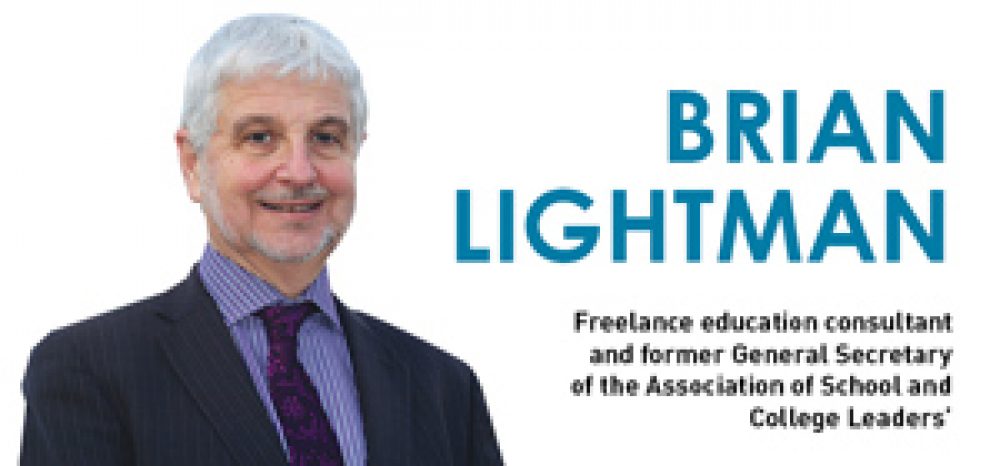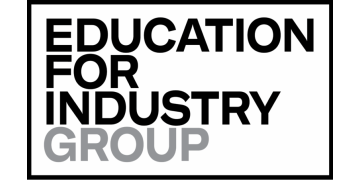Education secretary Nicky Morgan has released a video to explain the government’s plans for primary assessments. Brian Lightman has watched it, and has some thoughts.
I watched Nicky Morgan’s video about the new primary assessments with great interest. It was helpful to receive a clear explanation of the government’s rationale in implementing these tests. The message of this video is fascinating and at the same time disturbing, for it sums up the problem with assessment which has beset our education system during recent years. Let me explain by analysing her message in some detail.
The Secretary of State begins by confirming the wide consensus that it is vital children leave primary school ready to succeed in their secondary study. None of us would disagree they need to master the basics. However, having made these uncontroversial statements she then states that we need to ‘test’ that pupils have mastered the basics and then links this to reform of the accountability system.
This is the nub of the problem.
Nobody would disagree that young people need to master the basics before leaving primary school and nobody would disagree that it is essential for every school to have effective and robust assessment systems in order to make secure judgements about these outcomes. Equally the need for all schools to be held accountable for the outcomes they achieve should also be uncontroversial.
The problem is that, instead of assessment being the basis for professional judgements about the effectiveness of the education provided for the learner, the core purpose of these tests is to be an accountability measure for institutions. This becomes particularly clear later in the video when the Secretary of State explains that the scaled scores will be published after the tests have been completed. She argues it will nevertheless be possible to ensure that pupils reach their full potential even though we do not know what the actual final standard will be. Teachers may well be completely confident that children have reached their full potential and still discover that the school is not deemed to have met the elusive new ‘standard’.
I find this incredibly difficult to understand. The question is what is meant by ‘potential’. With the vast amount of evidence now available about the fluid nature of intelligence, growth mindsets and the extent to which high quality education can have an enormous impact on pupil progress we need to be very careful indeed about any kind of language which might cap expectations.
Surely we need as teachers, school leaders, government, parents and employers to know exactly what we want the outcomes of learning to be in our national curriculum. As we all agree it is essential for young people to master the basics we should be able to define them very clearly and assess whether or not they have been met. We should be absolutely clear now about the standard whilst recognising that it might take some time to get there as the new national curriculum is still in the process of being introduced but we should decide later about the accountability measures. That assessment about the effectiveness of a school within the context of its intake and other local factors is a completely different matter. Conflating the two purposes can only lead to perverse incentives and unintended consequences.
As long as this happens assessment will not be about learning but about accountability and we will be left with exactly the same problem as the one that has beset GCSE in recent years. If increasing numbers of pupils achieve the outcomes we want then we should have cause to celebrate rather than opening up accusations of ‘dumbing down’. If the opposite occurs we will need to diagnose the problem and address the issue.
Restoring the design and conduct of assessment to its rightful place as one of the highest order capabilities of a highly qualified profession is possibly the most important task facing our education system at present. It is an immense opportunity to unlock ambition and achievement. It is an equally immense challenge both to government which needs to step back and empower the profession and to the profession itself which needs to ensure that every teacher and every school has the necessary skills and expertise.
Brian Lightman has established an education consultancy company Lightman Consulting Ltd providing leadership services and support to schools. His website will be launched on 9th March at www.lightmanconsulting.co.uk.







Brian raises some excellent points. Now that he has left ASCL and the constraints of representing an Association I would love to hear Brian’s views on how Headteacher professional associations such as ASCL are partly responsible for the declining professional status of teachers.
It seems to me that the Headteacher associations are terrified of rocking the boat politically. They don’t seem able to challenge government policy of whatever colour when they know a policy will damage the education system. As these professional organisations have become less and less important as opinion formers in the national debate, the government is able to promote more and more extreme policies.
If we look at Nicky Morgan’s video we see someone who seems to despise teachers. We see an intellectual lightweight who I would not employ on any SLT that I led.
So Brian, have you any insights into how we can get out of this mess? We now have the absurd situation where 11 year olds will be tested on grammar that no adult has ever had to learn and the school will be judged afterwards on whether the head should be sacked or not as a consequence of these half-baked ideas.
Should ASCL and similar organisations be giving more attention to how they can uphold real standards of quality education in our schools? At the moment these organisations seem to be condoning DfE policies by their deafening silence. How can teachers be heard?
How can Headteacher organisations help lead debate and be seen as authoritative? We need an ACTION plan! Or do we just let the teaching profession implode?
It’s not difficult to understand. It’s the whole point! Children are to taught they have failed from year one onwards as a deliberate ploy to create failure and low expectation. They the form a cheap, unskilled labour force to allow GB to complete with Far East. It’s a deliberate and calculated policy that the entire profession now colluded in. Why are not all the teaching profession sayin with a single voice, enough is enough.